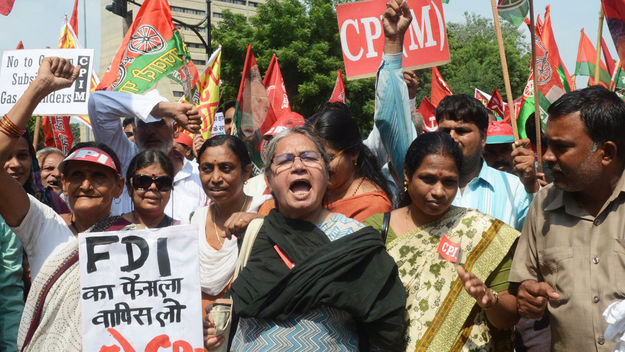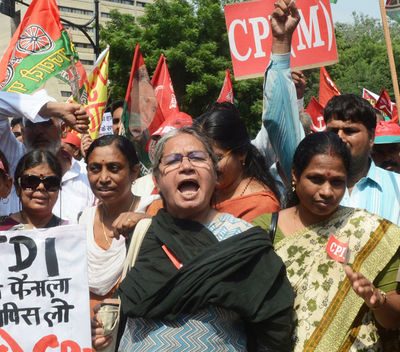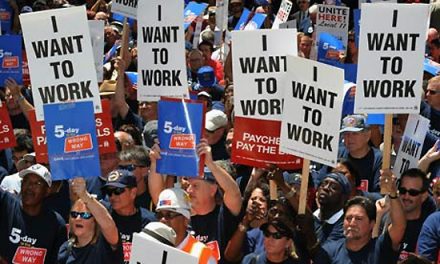 U.S., European Supermarket Chains Allowed 51% Stake
U.S., European Supermarket Chains Allowed 51% Stake
By Chanel 4 News
September 20, 2012 – Businesses, schools and transport links are shut down across India, as protesters stage a one-day strike over sweeping economic reforms allowing foreign supermarkets to move in.
Commuters were stranded, shops were shuttered and some government offices stayed closed – as part of a nationwide strike against sweeping economic reforms, including plans to open up India to direct foreign investment.
The measures, announced by Prime Minister Manmohan Singh, have already provoked a political crisis within his shaky ruling coalition, as the powerful Trinamool party announced it would pull out. But in the face of a spiraling fiscal deficit and slowing economic growth, the government felt compelled to act.
For the first time, foreign firms will be allowed to take a 51 percent stake in retail stores, allowing supermarket giants like Tesco, Wal-Mart and Carrefour to swoop in. That has enraged the owners of millions of small shops known as kiranas, who fear they will be trampled by the multinationals.
India currently has the world’s highest density of shops, with an estimated 50 million kiranas around the country, and the Confederation of All India Traders estimates that the livelihoods of 220 million people depend on them. With a retail market worth around £300m a year, the big supermarkets have been waiting for a chance to move in.
There will be tough conditions on their investment, though: they will only be allowed to operate in cities with a population over a million people. Local state authorities must agree to let them in. There’s a minimum investment of more than £70m, and at least 30 per cent of goods must be sourced from local, Indian suppliers.
Misplaced fear?
According to a study earlier this month by the Federation of Indian Chambers of Commerce and Industry, together with Pricewaterhouse Coopers, the political fear over the advance of the foreign supermarkets could be misplaced.
“The traditional kirana stores and outlets in India have been able to compete very successfully with modern retail for a very long time,” they wrote. “Their presence in the midst of a residential area is a big advantage.”
According to some analysts, the big supermarkets will not be able to open in the densely populated sprawling streets of most Indian city centres – ideally suited to the tiny, hole-in-the-wall kiranas. Instead they are more likely to site themselves on the edge of town, aiming at a separate market altogether.
Supporters of the change say India’s retail market is rife with inefficiencies. Some 40 per cent of farm produce, they claim, is left to rot before it even reaches consumers, while there are huge stockpiles of grain and perishable goods which also never make it as far as the shops. Distribution middlemen also siphon off much of the profit for themselves.
Marks & Spencer, which has been operating in India for a decade, began life in the country as a high-end brand, with prices to match. But it has now begun sourcing far more local stock, and is now aiming for a much broader, middle-market consumer.
Now the door is open for the likes of Tesco and Wal-Mart, which have often become the target of opposition abroad over the allegedly tough conditions they impose on local suppliers and employees.
To complicate matters, India’s main opposition party, the BJP, has long been trying to exploit popular anger over the retail reforms, ahead of elections later this year. Subhash Agrawal, from the think tank India Focus, told AFP: “People fall for populist slogans, It is easy for politicians to say reforms are anti-poor.”
But Prime Minister Singh has insisted the changes are neccessary to tackle unemployment and provide a much needed boost to the economy, in difficult times.







